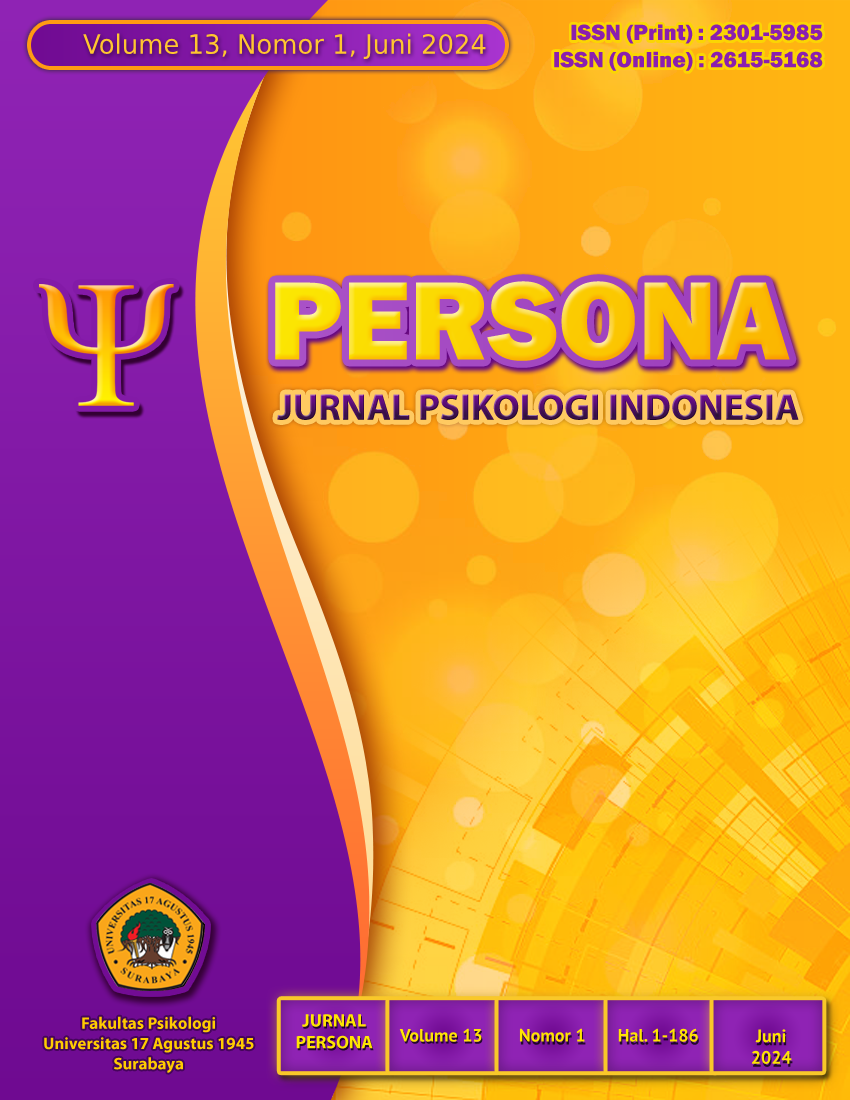Efektivitas pelatihan resiliensi untuk menurunkan stres akademik mahasiswa: Randomized PreTest, PostTest and Follow-Up
Effectiveness of resilience training to reduce academic stress in college students: Randomized PreTest, PostTest and Follow-Up
DOI:
https://doi.org/10.30996/persona.v13i1.10841Keywords:
Academic Stress, Resilience Training, Randomized Pre-Test, Post-Test, and Follow-Up (RPPF)Abstract
Academic stress not only occurs in students at school but also occurs in many college students. Several studies have shown that irrational thoughts about self-confidence and low resilience are related to high academic stress. This study aims to analyze the effectiveness of resilience training to reduce academic stress in students. This study is an experimental study with a Randomized Pre-Test, Post-Test, and Follow-Up (RPPF) design. Researchers randomly divided participants into experimental and control groups. The experimental group received eight sessions of resilience training intervention for three weeks, with two to three sessions per week, each lasting 90 minutes. Both groups underwent measurements before the intervention (pre-test), after the intervention (post-test), and two weeks after the intervention (follow-up). This research instrument used an academic stress scale (α =0.842). Data analysis using Multivariate Analysis of Covariance showed that resilience training had significant effectiveness in reducing academic stress in students. The implications of further research are discussed.
Downloads
Downloads
Published
Issue
Section
License
The author who will publish the manuscript at Persona: Jurnal Psikologi Indonesia, agree to the following terms:
1. Authors retain copyright and grant the journal right of first publication with the work simultaneously licensed under a Creative Commons Attribution ShareAlike License that allows others to share the work with an acknowledgment of the work's authorship and initial publication in this journal.
2. Authors are able to enter into separate, additional contractual arrangements for the non-exclusive distribution of the journal's published version of the work (e.g., post it to an institutional repository or publish it in a book), with an acknowledgment of its initial publication in this journal.
3. Authors are permitted and encouraged to post their work online (e.g., in institutional repositories, pre-prints sites or on their website) prior to and during the submission process, as it can lead to productive exchanges, as well as earlier and greater dissemination of published work






